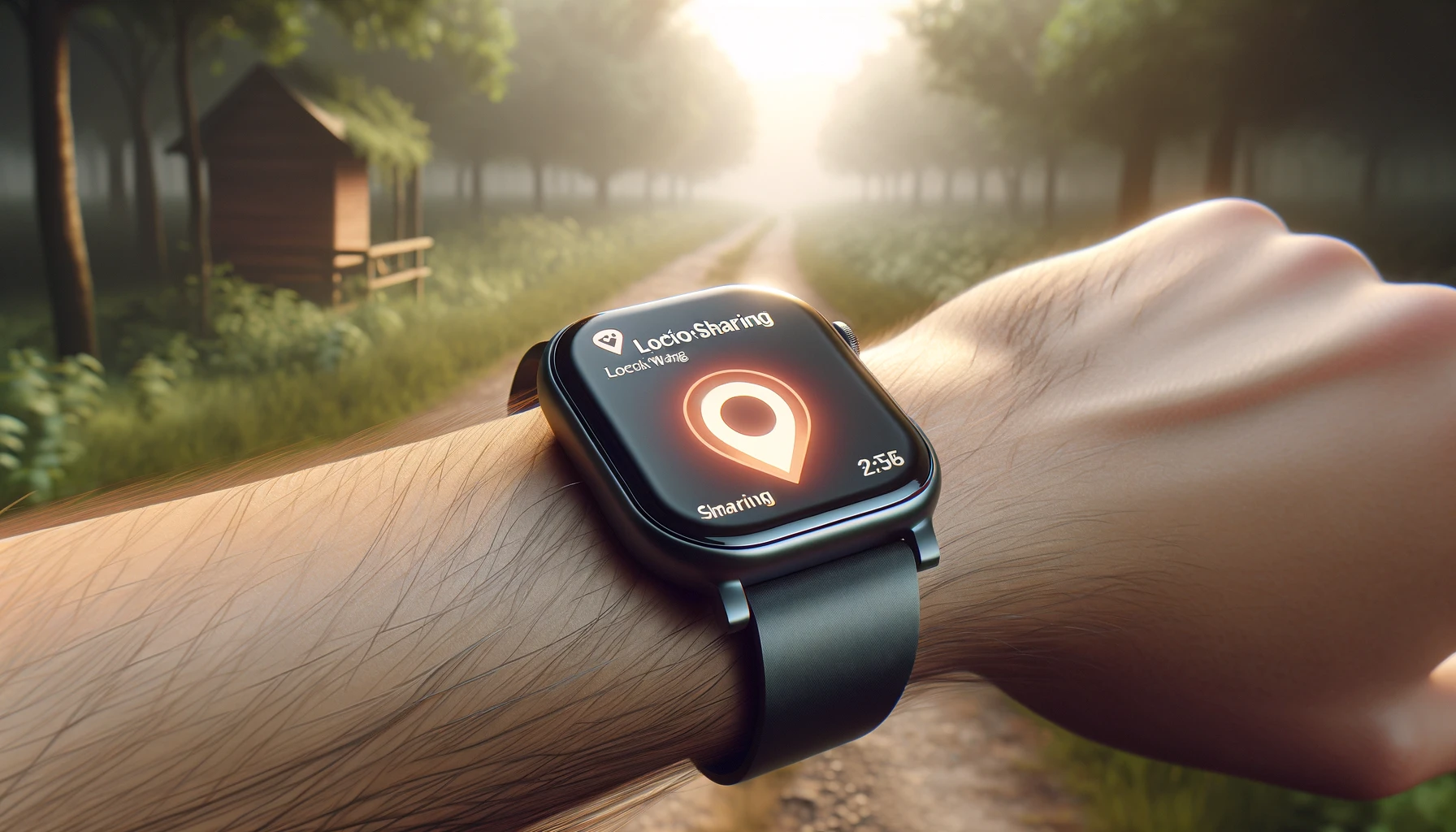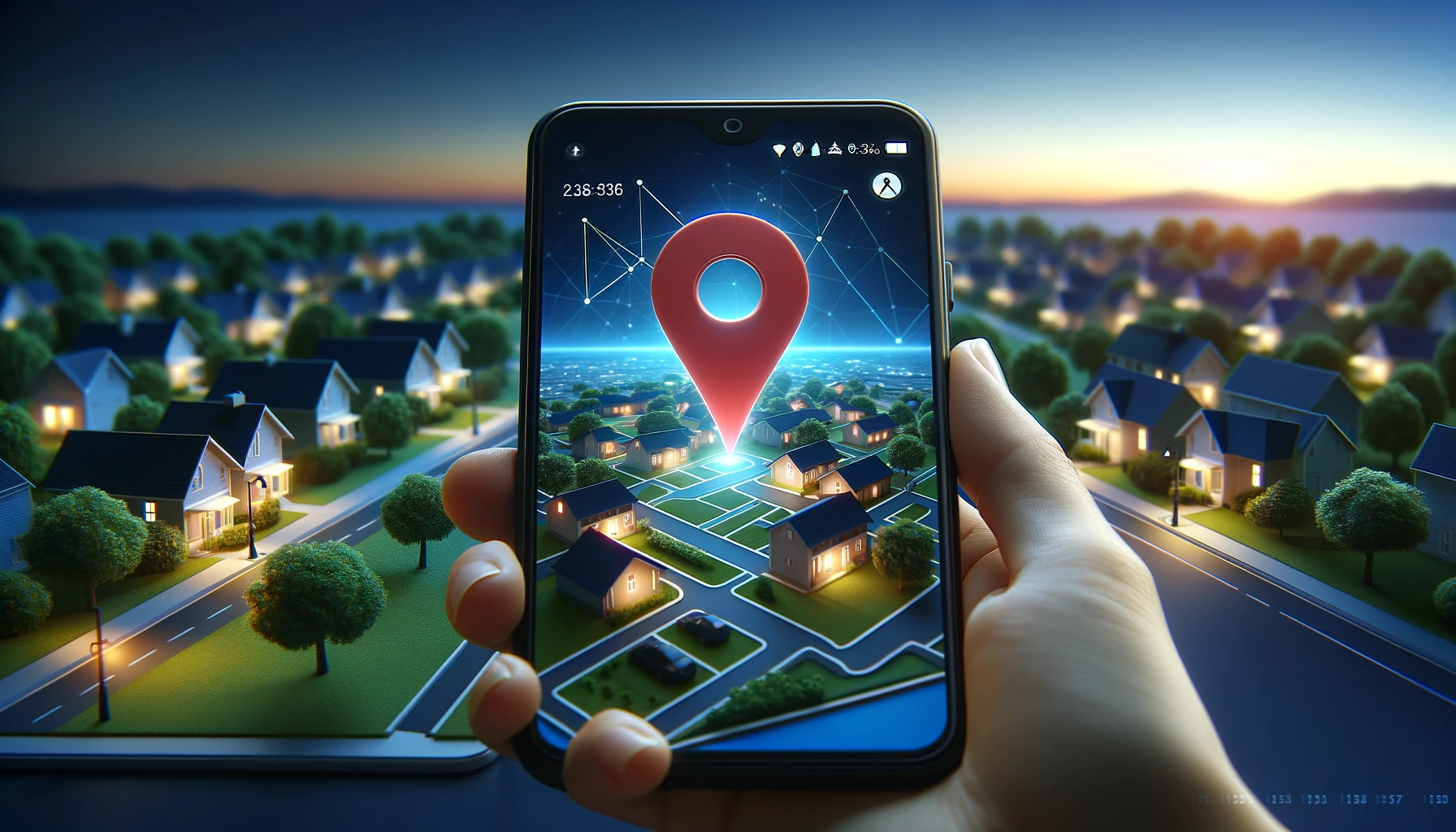In today's world, where emergencies can strike anywhere, technology is a lifeline. It's like a safety net that can help us navigate through the chaos.Particularly in the realm of emergency preparedness, certain technological advancements have not only improved our way of life but have indeed become potential lifesavers. Among these innovations, location sharing apps have emerged as a critical tool in our safety toolkit, proving invaluable in situations where every second counts.
What Are Location Sharing Apps?
Location sharing applications are a type of mobile application allowing users to share their current location with other individuals. These applications harness GPS technology to pinpoint and relay the user's precise location and ensure that the information is both accurate and current. This capability is not just a convenience in daily life—for instance, when meeting up with friends or keeping track of family members during outings—it's a lifeline in emergency situations.
The Lifesaving Mechanism Of Location Sharing Apps
The question then arises: how can something as simple as sharing your location be a matter of life and death? The responses are as diverse as they are intriguing.
Quick Response to Emergencies: Time is of the essence in emergency situations. Whether it's a medical crisis, a natural disaster, or an accident, the ability to quickly locate the affected individual can dramatically impact the outcome. Location sharing apps facilitate a faster response and allow victims to provide their exact location to emergency services, avoiding the need to describe their location in high-stress situations. This feature is particularly important in case a person is unable to communicate or is disoriented.
Safety Check: In today's world, where uncertainties abound, the peace of mind that comes from knowing your loved ones are safe is invaluable. With the option to share their location they can ensure the safety of their loved ones without the need for frequent check-ins. This is especially useful during chaotic situations or in case of widespread emergencies.
Emergency Planning: Preparing for emergencies involves anticipating various scenarios and devising plans to ensure safety. Location sharing apps contribute to this preparation and enable families to share their locations during some disasters. This shared information ensures that all family members are accounted for and facilitates reunification in chaotic circumstances.
Travel Safety: The excitement of exploring new places can sometimes be marred by the risks associated with unfamiliar environments. Travelers can mitigate these risks by using location-sharing apps to keep a trusted contact informed of their movements. This ensures that, should an emergency arise, there's someone who knows the traveler's last known location and can alert authorities if necessary.

How To Effectively Utilize Location Sharing Apps?
While the benefits of location-sharing apps are clear, their effectiveness hinges on their proper use. Here are key considerations for maximizing the potential of these apps:
Choose the Right App: With lots of options available, selecting an app that suits your specific needs is crucial. Consider factors such as user-friendliness, reliability, and the features offered. Whether it's the ability to create groups, send SOS alerts, or tracking a cell phone's location discreetly, the right app will align with your safety priorities.
Update Your Location Regularly: For location-sharing apps to serve their purpose, they require the most current location data. Users should ensure that their app is running and their location services are enabled, particularly in situations where they anticipate potential danger.
Share Your Location with Trusted Contacts: The essence of location sharing is trust. It's imperative to choose contacts who you trust implicitly, as this information is sensitive and, in the wrong hands, could be misused.
Use the App in Emergency Situations: In the event of an emergency, knowing how to swiftly share your location or send an alert via your chosen app can make a significant difference. Familiarity with the app's emergency features is therefore essential.
Deepening The Impact: Location-Sharing In Diverse Emergencies
As we delve deeper into the realm of emergency preparedness, it becomes evident that location-sharing apps are not just beneficial but, in many instances, critical. Their application spans a wide array of emergency situations, offering solutions that were unimaginable just a few decades ago.
Beyond Quick Responses: Comprehensive Safety Solutions
The value of location-sharing apps extends beyond facilitating rapid emergency responses; these tools play a comprehensive role in enhancing safety across multiple scenarios:
Navigating Natural Disasters: Natural disasters pose unique challenges, often disrupting communication networks and making traditional rescue operations difficult. In such scenarios, location-sharing apps become invaluable. For instance, in the aftermath of an earthquake, roads may be impassable, and family members might be scattered across different locations. Sharing locations in real-time allows rescue teams to prioritize areas with the highest concentration of people or to swiftly locate individuals in remote or hard-to-reach areas, facilitating targeted rescue operations.
Addressing Medical Emergencies: In medical crises where the victim is unable to articulate their condition or location, location-sharing apps can literally be lifesavers. By sharing their location with healthcare professionals or emergency contacts, individuals can ensure that help is on the way, even if they're unable to communicate. This is especially crucial for people with chronic conditions, the elderly, or those engaging in high-risk activities alone.
Enhancing Personal Security: Personal security threats, such as assaults or kidnappings, are harrowing realities where location-sharing apps can make a difference. Victims or potential victims can discreetly share their location with trusted contacts or authorities, enabling immediate action. The mere presence of such an app, if known to potential perpetrators, can act as a deterrent.
Supporting Mental Health Emergencies: Mental health crises often require immediate intervention, yet the stigma and confusion surrounding these situations can delay assistance. Through location-sharing apps, individuals facing such crises can alert their support network, ensuring they're not alone during critical moments. This quick sharing of location with therapists, family, or friends can initiate swift support and potentially prevent tragic outcomes.

Actionable Advice For Leveraging Location Sharing Apps
Maximizing the benefits of location-sharing apps requires more than just downloading the app. Here are strategies to enhance their effectiveness:
Pre-Emergency Planning: Before an emergency strikes, discuss with your family, friends, or co-workers how and when to use location-sharing apps. Establish protocols for different types of emergencies, ensuring everyone knows how to share locations and respond to shared locations.
Regular Drills: Practice makes perfect. Conduct regular drills to ensure everyone is comfortable with the chosen location-sharing app. This includes understanding how to quickly share locations, interpret shared locations, and communicate effectively through the app during emergencies.
Privacy Considerations: While the benefits of location-sharing apps are clear, it's also important to have a conversation about privacy. Discuss and agree upon the circumstances under which it's acceptable to share locations to ensure everyone's comfort and trust in the technology.
Battery Life Management: A location-sharing app is only as good as the device's battery life. Encourage habits that ensure devices are charged, especially in situations where power might be unreliable. Consider carrying portable chargers or battery packs as part of an emergency kit.
Embracing The Future: Innovations And Ethical Considerations In Location Sharing
As we navigate through the digital age, the evolution of location-sharing apps continues to redefine the landscape of emergency preparedness.
The Next Frontier In Location Sharing Technologies
The future of location-sharing apps is marked by advancements that aim to increase precision, speed, and user autonomy, making these tools even more indispensable in emergencies:
Advanced Geolocation Technologies: Future iterations of location-sharing apps may utilize more advanced geolocation technologies, such as indoor positioning systems that can pinpoint a user's location within buildings, complex urban landscapes, or underground facilities. This level of precision could significantly improve responses in scenarios like fires in high-rises or incidents in subway systems.
AI and Machine Learning Integration: By integrating AI and machine learning, location-sharing apps could predict and respond to emergencies before they escalate. For instance, an app might detect patterns indicative of a health crisis or a security threat, prompting preemptive alerts to the user and their emergency contacts.
Enhanced Privacy Controls: Innovations in privacy controls will allow users to manage their location data more precisely, deciding who can see their location and when. This could include temporary sharing with emergency services or automatic activation based on certain triggers, like the user not moving for an extended period.
Wearable Integration: Wearables, such as smartwatches and fitness trackers, are becoming increasingly popular. Their integration with location-sharing apps could provide more ways to share location automatically and discreetly, especially useful in situations where accessing a phone might not be possible.
Navigating Ethical Considerations
With great power comes great responsibility. The capabilities of location-sharing apps raise important ethical questions, particularly regarding privacy, consent, and data security:
Privacy and Consent: Ensuring that users have complete control over their location data is paramount. Users must be able to give explicit consent for when and how their location is shared, with clear options to withdraw consent at any time.
Data Security: As location-sharing apps handle sensitive information, robust security measures must be in place to protect this data from unauthorized access or breaches. This includes end-to-end encryption and regular security audits.
Transparency: Companies developing and offering location-sharing apps should be transparent about their data use policies, including how data is collected, stored, and potentially shared with third parties.
Accessibility: Finally, as these technologies become increasingly integral to safety, ensuring they are accessible to all segments of the population is critical. This includes considerations for individuals without smartphones, the elderly, or those with disabilities.
Charting A Safe Course Forward
As we stand at the intersection of technology and safety, the path forward is clear—embracing the potential of location-sharing apps while diligently addressing the ethical considerations that accompany their use. By fostering innovations that enhance precision, integrate seamlessly with our lives, and uphold our values of privacy and consent, we can make strides towards a future where technology is a steadfast ally in our safety and well-being.
In this journey, companies like ProSupport play a pivotal role, offering expertise and solutions that harness the power of technology to enhance emergency preparedness. As we chart this course, let us remain committed to leveraging these tools responsibly, ensuring that as we embrace the future of location sharing, we do so with the aim of creating a safer, more connected world for everyone.
Through thoughtful engagement with these technologies, informed by both their potential and their challenges, we can navigate the complexities of modern emergencies. By doing so, we not only enhance our individual safety but also contribute to a broader culture of preparedness and resilience. Let's move forward together, empowered by the promise of location-sharing technologies and committed to using them to safeguard our most precious asset—life itself.


